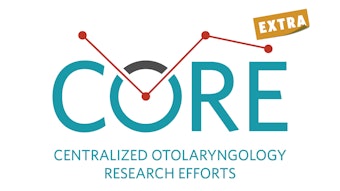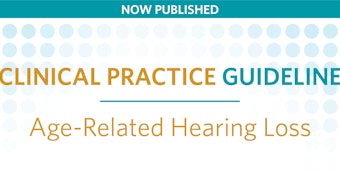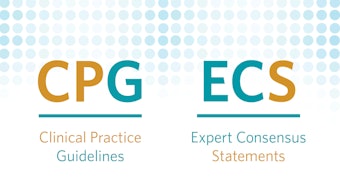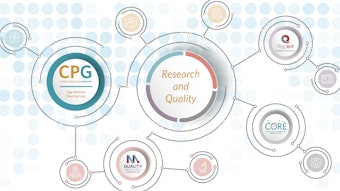Depression in Head and Neck Cancer Patients
More must be done to prioritize psychological screening and interventions for patients with head and neck cancer.
Brandon T. Smith, MD, Aru Panwar, MD, Janice L. Farlow, MD, PhD, Jeffrey C. Liu, MD, and Kevin J. Contrera, MD, MPH, on behalf of the Head and Neck Surgery & Oncology Committee

In the United States population, the overall prevalence of depression is estimated to be 4.7%.1 However, for patients with head and neck cancer, rates of depression are significantly higher at 20%-40%, which is higher than the rates in survivors from other cancer types.2 This considerably higher rate of depression has been attributed to the incredible hardships associated with the diagnosis and treatment of head and neck cancer. Functional impairments, including dysphagia and xerostomia, have a significant association with anxiety and depression. Social impairments from head and neck cancer treatment, including trouble with social eating and social contact due to speech difficulties and facial disfigurement, are closely associated with anxiety and depression. There is also a significant economic component, including stressors about employment, family financial well-being, and the overall economic burden of treatment. It is unsurprising that patients with head and neck cancer report higher rates of depression.
Depression in this population has wide-ranging effects. For patients with head and neck cancer, depression is associated with worse survival and health-related outcomes, including cancer treatment interruptions, body image distress, sleep disturbances, and a dramatically increased risk of suicide.3,4 These patients suffering from depression also report worse pain and increased opioid use following surgery. Large-scale studies of psychiatric comorbidities in patients with head and neck cancer demonstrate that anxiety and depression are significant predictors of post-treatment health care needs—affecting both the number of hospitalizations and hospital bed days.5 Consequentially, the costs of head and neck cancer treatment are increased for patients experiencing depression. With the significant effects that depression has on morbidity, mortality, and costs of care, more must be done to mitigate these symptoms.
Existing research on the treatment of depression in these patients has focused on traditional treatment pathways. Preliminary examinations of pharmacological intervention with selective serotonin reuptake inhibitors (SSRIs) on improving depression for head and neck cancer patients have shown promise. The use of prophylactic SSRIs has been found to have a significant protective effect against developing depression throughout head and neck cancer treatment.6,7 Cognitive behavioral therapy, an increasingly common intervention for the management of anxiety and depression, has also been found to significantly reduce long-term depression in head and neck cancer patients.8 Group therapy with caregivers has been found to have similarly helpful effects on post-treatment depression. While these studies demonstrate the effectiveness of singular interventions for improving depression, they have yet to explore the synergistic effects of multimodal therapy guided by a behavioral health specialist.
The field is working to pioneer new, integrated care models for identifying pre-treatment depression and connecting depressed patients with psychiatrist-led multimodal treatment. Pre-treatment screening, using instruments such as the patient health questionnaire-9 (PHQ-9), are being trialed at several institutions nationwide. For patients demonstrating clinical depression, coordination with behavioral health experts can provide inpatient intervention with pharmacological treatment and/or longitudinal outpatient resources such as therapy and group counseling.
Depression is a significant behavioral health issue that disproportionally affects head and neck cancer patients. Because these patients frequently suffer from impairments in eating, speaking, and appearance, these symptoms contribute to social isolation and increased rates of depression. Patients suffering from depression demonstrate worse treatment adherence, increased healthcare costs, worse quality of life, and decreased overall survival. SSRIs and counseling are effective interventions for reducing depression. However, further explorations using an integrated care model are needed. Such models could combine pre- and post-treatment depression screening with psychiatrist-led, multimodal treatment. Head and neck surgery physicians and multidisciplinary teams should consider the impact of depression in the care of head and neck cancer patients and consider behavioral health intervention as part of their treatment paradigm.
References
- Zablotsky, B., Weeks, J., Emily, T., Madans, J. & Blumberg, S. Assessing Anxiety and Depression: A Comparison of National Health Interview Survey Measures. https://stacks.cdc.gov/view/cdc/117491 (2022) doi:10.15620/cdc:117491.
- Wu, Y.-S. et al. Anxiety and depression in patients with head and neck cancer: 6-month follow-up study. NDT 1029 (2016) doi:10.2147/NDT.S103203.
- Zimmaro, L. A. et al. Depressive symptoms predict head and neck cancer survival: Examining plausible behavioral and biological pathways. Cancer 124, 1053–1060 (2018).
- Barber, B. et al. Depression and Survival in Patients With Head and Neck Cancer: A Systematic Review. JAMA Otolaryngol Head Neck Surg 142, 284 (2016).
- Jeffery, D. D., Art Ambrosio, L., Hopkins, L. & Burke, H. B. Mental health comorbidities and cost/utilization outcomes in head and neck cancer patients. Journal of Psychosocial Oncology 37, 301–318 (2019).
- Lydiatt, W. M. Prevention of Depression With Escitalopram in Patients Undergoing Treatment for Head and Neck CancerRandomized, Double-blind, Placebo-Controlled Clinical TrialEscitalopram for Depression Prevention. JAMA Otolaryngol Head Neck Surg 1 (2013) doi:10.1001/jamaoto.2013.3371.
- Lydiatt, W. M., Denman, D., McNeilly, D. P., Puumula, S. E. & Burke, W. J. A Randomized, Placebo-Controlled Trial of Citalopram for the Prevention of Major Depression During Treatment for Head and Neck Cancer. Arch Otolaryngol Head Neck Surg 134, 528 (2008).
- Liu F, Fu SN, Chen YZ, et al. Effects of Cognitive Behavioral Therapy for Depression and Anxiety, Response Rates and Adverse Events in Patients with Locoregional Advanced Nasopharyngeal Carcinoma. Integr Cancer Ther. Jan-Dec 2021;20:15347354211006179. doi:10.1177/15347354211006179




















